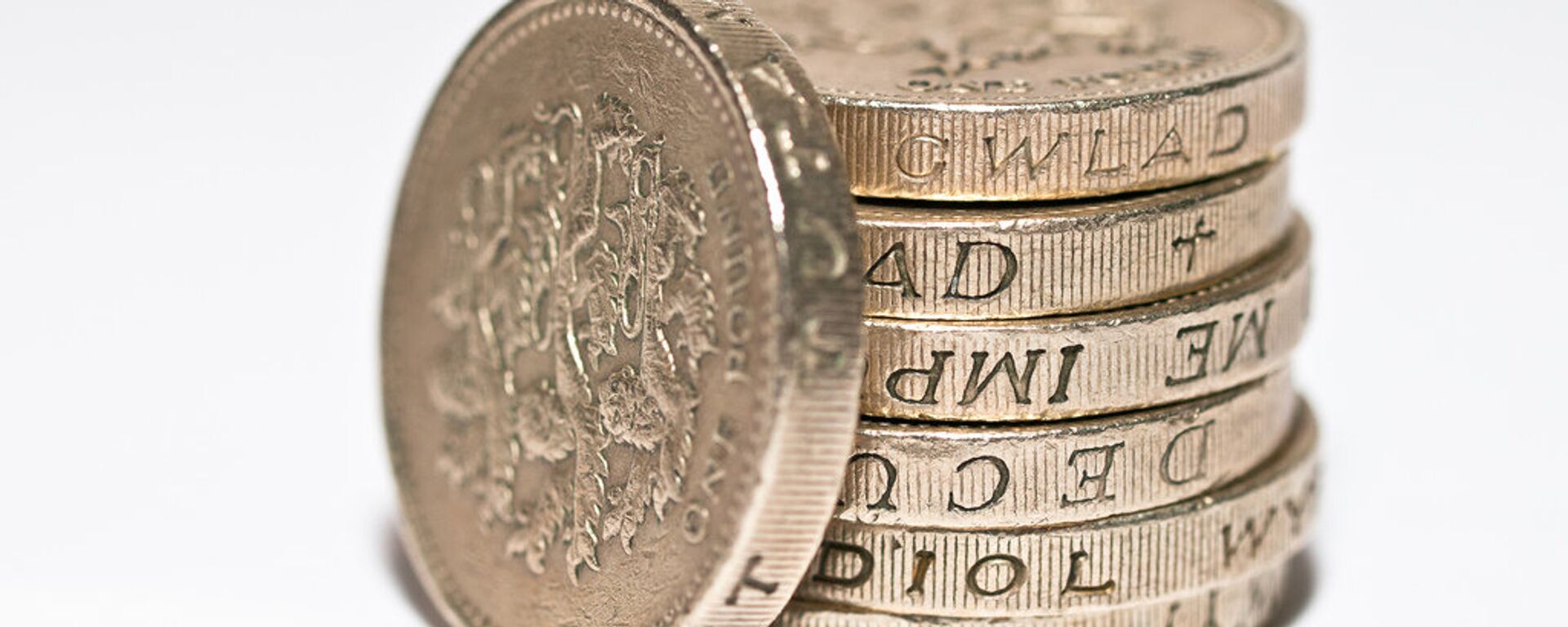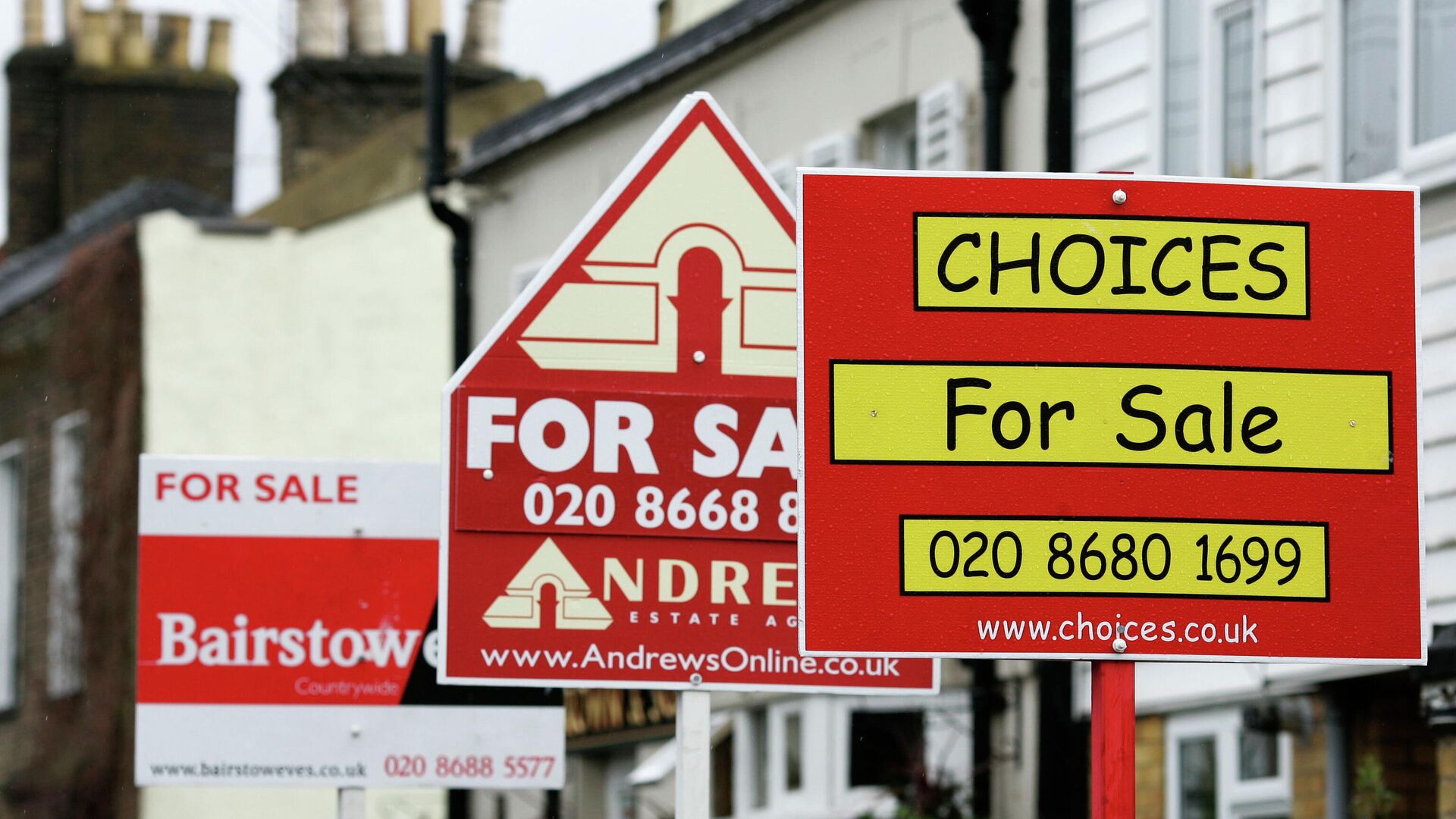https://sputnikglobe.com/20221003/housing-in-uk-more-unaffordable-than-ever-thanks-to-pandemic-property-boom-1101461343.html
Housing in UK More Unaffordable Than Ever Thanks to 'Pandemic Property Boom'
Housing in UK More Unaffordable Than Ever Thanks to 'Pandemic Property Boom'
Sputnik International
House prices n the UK have risen above the rate of inflation steadily since the late 1970s, with only two major falls in the early 1990s and following the 2008... 03.10.2022, Sputnik International
2022-10-03T17:36+0000
2022-10-03T17:36+0000
2023-05-28T15:21+0000
britain
great britain
housing
rising house prices
world
united kingdom (uk)
https://cdn1.img.sputnikglobe.com/img/07e6/0a/03/1101464786_0:83:3072:1811_1920x0_80_0_0_cbb182c5a4dc424313bd8104bc2c06aa.jpg
Home prices in the UK are running at seven times average household earnings thanks to the COVID-19 pandemic property boom.The latest survey by the Nationwide building society found that it now cost the the average homebuyers 40 per cent of their household income to service their mortgage.Those figures varied from region to region, however. Mortgage repayments ranged from two-thirds of take-home earnings in London to one-quarter in northern England, while the home price to annual salary ratio went from 11 times average income in the capital to four-and-a-half times in the north.Families eager to up-size their living space while stuck at home during the COVID-19 lockdowns of 2020 and 2021 drove a buying frenzy that added £1 trillion to the total value of property in the UK. That was helped along by the government's break in Stamp Duty, the tax paid on buying property.A predicted slump of 10-15 per cent — as the Bank of England hikes up its interest rate in a bid to tackle rampant inflation caused by sanctions on Russia — has yet to materialise. Increasing numbers of homes are being listed for sale by public auction rather than by asking for individual offers — favouring landlords who can pay in cash over would-be occupants who must secure a mortgage.Gardner warned that if 'swap rates', the interest rate that mortgage lenders pay on money borrowed to lend out, stayed at their current level and the trend of house prices and wages continued, homes would become even less affordable.House prices in the UK have risen above the rate of inflation steadily since the late 1970s, with only two serious dips in the early 1990s and following the 2008 'Credit Crunch' banking crisis.
https://sputnikglobe.com/20220927/market-tumult-prompts-uk-mortgage-lenders-to-withdraw-new-home-loans-1101255980.html
britain
great britain
united kingdom (uk)
Sputnik International
feedback@sputniknews.com
+74956456601
MIA „Rossiya Segodnya“
2022
Jamarl Thomas
https://cdn1.img.sputnikglobe.com/img/07e5/02/12/1082114086_0:0:373:374_100x100_80_0_0_c7506df4524fd8cdd4e40ad19918cd78.png
Jamarl Thomas
https://cdn1.img.sputnikglobe.com/img/07e5/02/12/1082114086_0:0:373:374_100x100_80_0_0_c7506df4524fd8cdd4e40ad19918cd78.png
News
en_EN
Sputnik International
feedback@sputniknews.com
+74956456601
MIA „Rossiya Segodnya“
Sputnik International
feedback@sputniknews.com
+74956456601
MIA „Rossiya Segodnya“
Jamarl Thomas
https://cdn1.img.sputnikglobe.com/img/07e5/02/12/1082114086_0:0:373:374_100x100_80_0_0_c7506df4524fd8cdd4e40ad19918cd78.png
britain, great britain, housing, rising house prices, united kingdom (uk)
britain, great britain, housing, rising house prices, united kingdom (uk)
Housing in UK More Unaffordable Than Ever Thanks to 'Pandemic Property Boom'
17:36 GMT 03.10.2022 (Updated: 15:21 GMT 28.05.2023) House prices n the UK have risen above the rate of inflation steadily since the late 1970s, with only two major falls in the early 1990s and following the 2008 'Credit Crunch' banking crisis. A predicted 10-15 slump due to sharply-rising interest rates has yet to materialise.
Home prices in the UK are running at seven times average household earnings thanks to the COVID-19 pandemic property boom.
The latest survey by the Nationwide building society found that it now cost the the average homebuyers 40 per cent of their household income to service their mortgage.
Those figures varied from region to region, however. Mortgage repayments ranged from two-thirds of take-home earnings in London to one-quarter in northern England, while the home price to annual salary ratio went from 11 times average income in the capital to four-and-a-half times in the north.
"The significant increase in house prices in recent years, together with the significant increase in mortgage rates since the start of the year, have pushed the typical mortgage payment as a share of take-home pay well above the long-run average," said Nationwide chief economist Robert Gardner.
Families eager to up-size their living space while stuck at home during the COVID-19 lockdowns of 2020 and 2021 drove a buying frenzy that added £1 trillion to the total value of property in the UK. That was helped along by the government's break in Stamp Duty, the tax paid on buying property.
A predicted slump of 10-15 per cent — as the Bank of England hikes up its interest rate in a bid to tackle rampant inflation caused by sanctions on Russia — has yet to materialise.
Increasing numbers of homes are being listed for sale by public auction rather than by asking for individual offers — favouring landlords who can pay in cash over would-be occupants who must secure a mortgage.

27 September 2022, 06:40 GMT
Gardner warned that if 'swap rates', the interest rate that mortgage lenders pay on money borrowed to lend out, stayed at their current level and the trend of house prices and wages continued, homes would become even less affordable.
"This would equate to a typical mortgage payment for first-time buyers rising to 45 per cent of average take-home pay, well above the circa 30 per cent prevailing at the start of the year, which was close to the long-run average," Gardner said.
House prices in the UK have risen above the rate of inflation steadily since the late 1970s, with only two serious dips in the early 1990s and following the 2008 'Credit Crunch' banking crisis.




